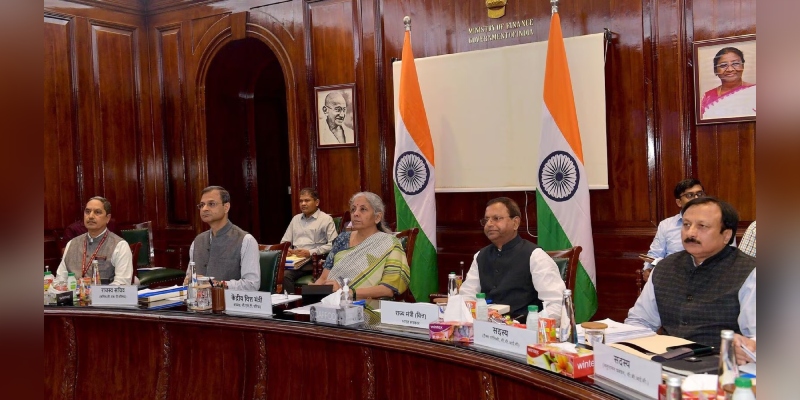
Following a GST Council meeting on 2 August, India’s finance minister Nirmala Sitharaman stated that the decision to apply a 28 per cent tax on the full value of bets placed on online games will go into effect from 1 October and that the policy may be reconsidered after the six months of implementation.
After the meeting, Sitharaman announced that the council had, in its 50th meeting, decided to tax all gambling-related activities, including casinos and horse racing, after a Ministerial committee had studied the topic for three full years.
Sitharaman said, “It was decided to tax them at 28 per cent on the full face value. Today, the meeting had a specific agenda of what amendments have to be made to the GST law.”
Although some state ministers have opposing views, Sitharaman said that the implementation date of 1 October will be followed by all. She added, “Minister from Delhi wanted the whole thing reviewed and asked for it to be sent back to the GoM…Then Goa and Sikkim who had interests in casinos, also felt the decision taken last time hurts their interests, although they agreed on the higher levy of 28 per cent, but to be levied on the gross gaming revenue rather than the face value.”
However, the finance minister said that other states, including Karnataka, Gujarat, Maharashtra, and Uttar Pradesh, wanted the decision made at the last meeting to be carried out.
Sitaraman stated, “The council recommended that valuation of supply on online gaming and actionable claims in casinos may be done based on the amount paid or payable or payable to or deposited with the supplier by or on behalf of the player, excluding the amount entered into the games, bets out of winnings of previous games and not on the total value of each bet placed.”
Here’s what the industry has to say about the decision:
Gamerji founder and CEO Soham Thacker said, “The GST council has today announced that levy of 28% on face value will be implemented from Oct 1st. This was an expected move as Gvt feels it to be a necessary step for collecting. However, as an industry, it is expected to affect online gaming both RMG and non RMG on their userbase revenues and overall gaming experience. Online gaming is still a nascent industry but in the last five years, it has attracted billions of dollars in investment. The fact that entities located outside India and are providing online gaming services will also fall under GST is likely to affect the investors’ sentiment and future fundraising efforts. While we are going to obey the law of the land, we feel that focusing on entering new international markets will serve as a good strategy to manage the impact of the GST levy.”
Nodwin Gaming CEO Sidharth Kedia said, “Nodwin Gaming continues to maintain that as long as esports is conducted in the spirit of any sport whereby money is not charged to participants, thereby making it a “Pay to Win” model, the recent GST decision will not have any adverse impact on the core esports entities operating in the ecosystem. Our collective efforts remain focused on enhancing the gaming and esports landscape in the emerging world as a whole.
The business model of Nodwin is anchored on brand sponsorships and media revenue. We are already paying GST on all our revenue streams like any media company in India. It is important to note that Nodwin Gaming does not impose any fees on esports organizations or players to participate in its tournaments. As a result, we fall outside the scope of this specific tax system, making us exempt from its application. “
Kick Rummy management said, “This is a major setback for the overall gaming industry as players will be less willing to pay higher taxes on their wagering. So, most players will switch to offshore operators, where they can avoid overall taxation (GST and TDS).
As an Indian operator, this will make it more difficult to compete with one another and stifle the growth of the industry (which has been rising exponentially over the past few years). It will also be very difficult to compete with offshore operators, who are not subject to GST.
Other effects that will be seen:
>job losses in the online gaming industry.
>deter FDI in the online gaming industry.
>damage the reputation of India as a gaming destination.
>detrimental to the overall Indian startup ecosystem.
However, the government’s willingness to review the decision after six months gives everyone some hope for the future of the online gaming industry.”

